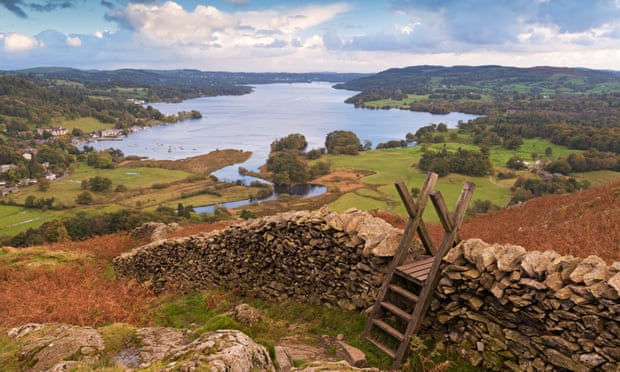Beauty. It’s a word we all use to describe our delight in the world around us: a landscape we love; a butterfly’s wings translucent in the sunshine; or a wondrous piece of architecture. We all love beauty; we have only to watch the numbers glued to TV’s Countryfile and Springwatch, and the way we head for the beach and the countryside as soon as the sun shines, to see that it’s something that meets a real human need.
Yet you’d be hard pressed to find the word in any official document, or to hear any politician utter it today. In fact we seem almost embarrassed to talk about beauty, other than in private. Instead we have invented all kinds of pseudo, management-speak words to describe the things we need to look after: words like ecosystem services, natural capital and sustainable development. And when we’re making decisions about the future, all we seem to care about is whether we will deliver growth or generate an economic return.
But it wasn’t always like that. Beauty was a word and an idea that people in previous centuries used freely and confidently, including in legislation and public policy. And because people celebrated beauty it was something they sought to create, in town and country, and enacted laws to protect the things and places people loved.
Beauty is written deeply into our culture. Some of the earliest texts show a yearning for beauty, with Chaucer reminding us that it was the beauty of an April spring that “longen folk to goon on pilgrimages”. Medieval stonemasons constructed fabulous churches and cathedrals, carving flowers and animals into their stone. Throughout history, artists and architects have sought to achieve aesthetic perfection, and nature has inspired countless poets and authors.

Lake Windermere in the Lake District. Photograph: Adam Burton/Getty Images/Robert Harding World Imagery
Perhaps the greatest champion of beauty was William Wordsworth. In the early 19th century he saw his beloved Lake District coming under pressure from the construction of ugly villas; the commercial extraction of ores; the invasion of the alien tree, the “spiky larch”; and the prospect of the railway arriving in Windermere. His cry – “is then no nook of English ground secure from rash assault?” – galvanised a movement of people who loved beauty and were prepared to stand up and defend it.
John Ruskin took up the fight, campaigning against the horrors of rampant industrialisation and its social consequences, his efforts leading to the creation of the National Trust and to the first ideas about good planning, with its aims of “the home healthy, the house beautiful, the town pleasant, the city dignified and the suburbs salubrious”.
Then, beauty mattered enough to shape policy for the public good. And so after the horror of two world wars, the 1945 government implemented a package of measures designed not only to meet people’s basic human needs but also their spiritual, physical and cultural wellbeing. The designation of National Parks, the protection of our cultural heritage and access to the countryside sat alongside the universal right to education, the NHS and the welfare state.
We understood then, as we seem to have forgotten now, that the human spirit is not satisfied by material progress alone. As the 19th-century environmentalist John Muir said: “Everybody needs beauty as well as bread.”
Yet today we seem to have become seduced by what the American economist Albert Jay Nock called “economism”: that which “can build a society which is rich, prosperous, powerful, even one which has a reasonably wide diffusion of material wellbeing. But it cannot build one which is lovely, one which has savour and depth, and which exercises the irresistible power of attraction that loveliness wields.”
Today when we talk about progress we mean only economic progress, and our measure of that is GDP. GDP charts only income, expenditure and production, and doesn’t even try to count the many things that matter but money can’t buy, the things that make us happy, and the natural resources on which we all depend. So it flatters us into thinking things are going well while we are destroying our long-term future.
Over the last century we have lost a vast richness of nature and much of the diversity of our landscape; we have degraded our soils and natural resources. In spite of huge efforts, nature and the beauty of the wider countryside are in a worse state than when the conservation movement set out to protect them. Add to this the looming pressures of climate change and it is clear we need to do things differently.
And here beauty can help us. Beauty is not just about aesthetics: it is a way of looking at the world that values the things we can’t put a material price on, as well as the things that we can measure. We seek prosperity, but we need a different kind of progress. We live in an era where fewer of us are driven by religious imperatives, but we are not lacking in spirituality, nor in the capacity to be moved to strive for better things. Beauty can give shape to that yearning.
Imagine how the world would look if we revived the fight for beauty. We would care more for the world around us. We’d build our cities, towns and infrastructure beautifully – imagine the debate about HS2 if we had set out to make it the most beautiful new railway in the world. We’d protect nature and the countryside, while still producing enough food. We’d care for our cultural inheritance and focus on improving our quality of life rather than striving for unsustainable levels of growth.
John Muir, as so often, had the words for it: the fight for beauty is “not blind opposition to progress, but opposition to blind progress”. It’s a fight to which we all need to belong.